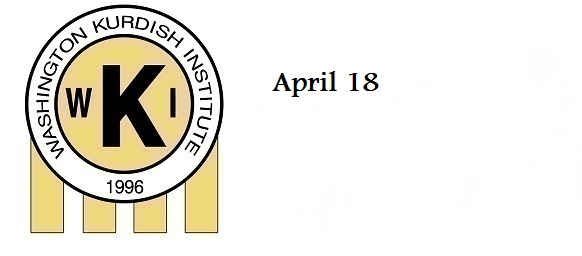993
Iran
- The Amnesty International released its annual “The Death Penalty in 2016: Facts and Figures”. In the report Amnesty listed Iran as the third country for death penalties. The report said that public executions took place in Iran and two people were under 18 when sentenced to death in 2016. The report said: “Iran alone accounted for 66% of all recorded executions in the region.”
- According to a local source who spoke with the Kurdistan Human Rights Network (KHRN), the Iranian regime Revolutionary Court in Urmiye sentenced a Kurdish writer Eli Bedrkhani to three years in prison on 29 March. Bederkhani was tortured for two months before he received bailed. The regime’s court accused Bederkhani of “acting against national security.”
- The head of the police in Qaladeze told Rudaw news that several Kurdish Kolbars (border porters) were shot by the Iranian regime’s guards. The official told Rudaw that all of the Kolbars were from the Kurdistan region of Iran. Many Kolbars suffered death and injuries while carrying goods on the border of Iran and Iraq.
Iraq
- According to the General Director of the Joint Crisis Center of the Kurdistan Regional Government (KRG), since the start of the Mosul liberation operation in October 17, 2016, the Kurdistan Region received 164,000 of the Internally Displaced People (IDP) from Mosul and its districts. The Director of the Joint Crises Center said that all the prepared camps in Arbil city are all occupied and they are not capable to receive any further IDPs.
- The Yazidi commander Haider Shasho resigned from the Central Council of the Patroit Union of Kurdistan (PUK) after he announced forming a new party of the Yazidis. Currently Shasho is leading a group of armed Yazidis which was formed after ISIS occupied Shingal in August of 2014. After resigning from the PUK, Shasho expressed his appreciation for years serving within PUK and hoped the party will continue to support the Yazidis.
Syria
- Military campaign to liberate Raqqa continued to advance. On April 13, the U.S.-backed Syrian Democratic Forces (SDF) announced the launch of phase 4 of the “Wrath of Euphrates” operation. The SDF entered the strategic city of Tabqah from the east and the west sides. Earlier this week, the SDF liberated three villages in the west and south of country side of Raaqa. After the friendly fire caused the death of 13 fighters of the SDF near Tabqa last week, the General Command of the SDF announced the start of joint investigation with the U.S. lead collation to find the cause of the incident.
- The Christians in the Kurdish city of Qamishli celebrated Easter. Hundreds of Syraic Christians joined the Virgin Mary Church in the city of Qamishli.
- The pro-Turkey armed groups bombarded the Kurdish city of Afrin and Northern Aleppo (Shahba area) with mortars and rockets. The People’s Defense Units (YPG) and Army of Rebels (Jaysh al Thwar) who control the security of the area responded to the attack. Tensions grew recently in northern Aleppo as the Turkish army entered Syria from the North targeting the Kurdish controlled areas.
Turkey
- The results of Turkey’s referendum favored yes. The unofficial results were first announced by the pro-government Anadolu Agency (AA). The final result later declared 51.4 in favor of the amendments to the Turkey’s constitution which will dissolve the council of ministers and grant absolute power to the President. The “No” votes reached 48.7% among the Turkish voters. The spokesperson of the Pro-Kurdish People’s Democratic Party (HDP) Osman Baydamir rejected the results and accused the alliance of the ruling party of Justice and Development (AKP) and the Nationalist Movement Party (MHP) in the referendum as “anti-democratic system” and “fascism.” Baydamir described the results as a “change of the constitution that is imposed on the country.” As the results were announced, protests took place in Istanbul, Ankara and Azmir to object the results. The protestors accused the Turkish government of rigging the voting. On April 17, the International Election Observers criticized Turkey’s referendum. “Lack of equal opportunities, one-sided media coverage and limitations on fundamental freedoms created an unleveled playing field in Turkey’s constitutional referendum,” said the International Referendum Observation Mission. Activists published videos on social media of “fraud voting.”

